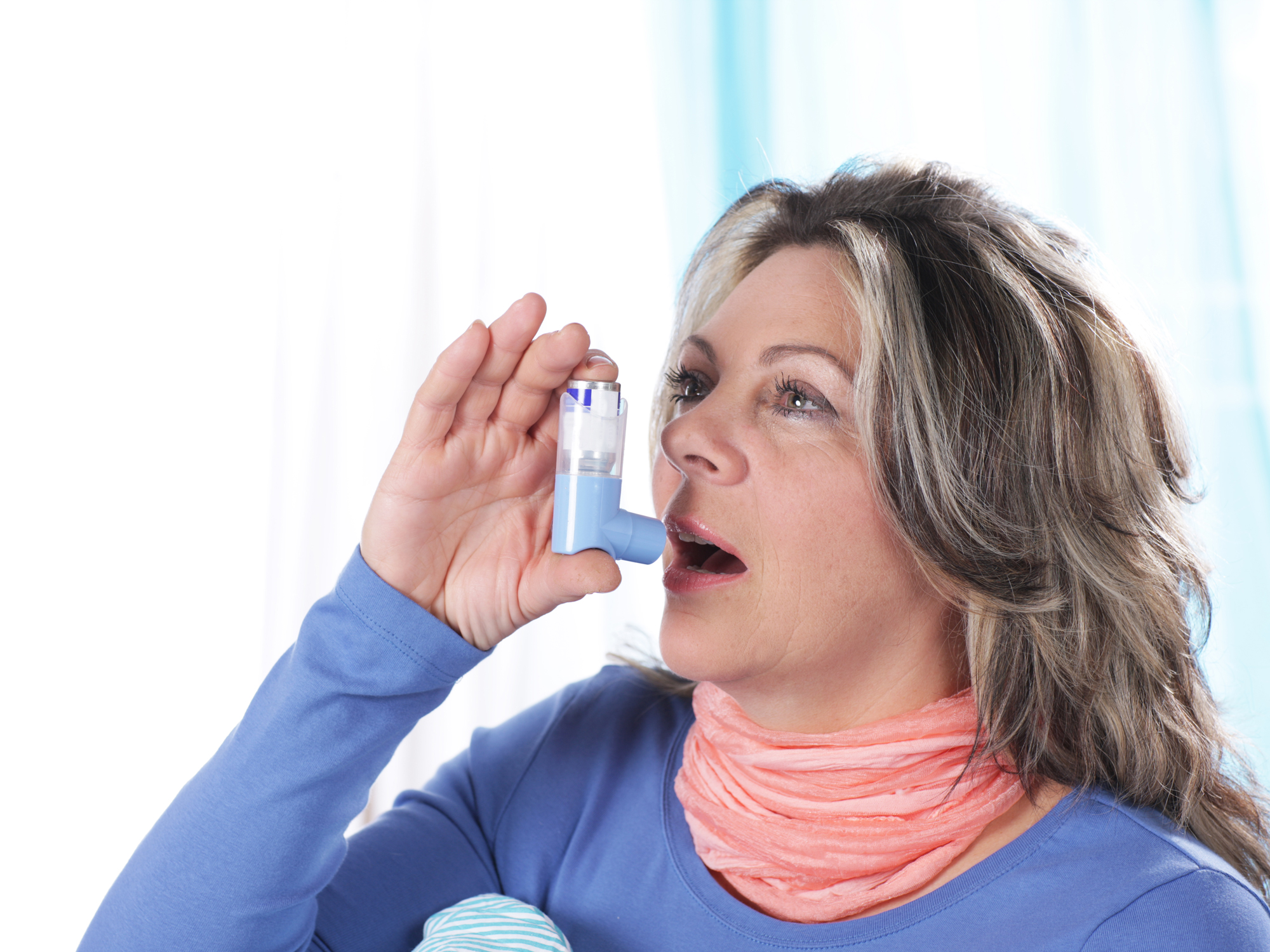Get Easy Health Digest™ in your inbox and don’t miss a thing when you subscribe today. Plus, get the free bonus report, Mother Nature’s Tips, Tricks and Remedies for Cholesterol, Blood Pressure & Blood Sugar as my way of saying welcome to the community!
Why menopausal women are getting asthma

Think you’re safe from asthma because you never had it as a child? Think again…
You can develop asthma when you’re 20, 40, 60 or even older. Adult-onset asthma is not nearly as common as childhood asthma (about 75 percent of asthma sufferers are diagnosed by the age of seven). But it happens.
And there’s one group of adults that’s especially vulnerable to developing asthma later in life — menopausal women.
In fact, a 2015 study published in The Journal of Allergy & Clinical Immunology (JACI) found that menopausal and post-menopausal women are nearly twice as likely to develop asthma as non-menopausal women.
That means, if you’re a woman of a certain age, you need to know what signs and symptoms to look out for and — even more importantly — how to lower your risk…
Asthma and menopause: What’s the connection?
It may seem odd that two seemingly unrelated conditions — menopause and asthma — are linked. But the connection becomes a heck of a lot clearer once you understand one fact…
Asthma is influenced by hormones.
Research shows that one-third of women have worse asthma symptoms just before or during their period, that teen girls are more likely to develop asthma than teen boys and that women are more likely to develop asthma during or after a pregnancy — all because of hormones.
So it’s no wonder then that menopausal women — who are going through the biggest hormonal shift of their adult life — are at an increased risk. It makes perfect sense. But it’s also incredibly unfair.
Why do menopausal women who are already dealing with hot flashes, mood swings, vaginal dryness, insomnia, brain fog and weight gain have to deal with asthma too? And a pretty serious form of it at that…
Adult-onset asthma tends to be more serious than the kind that strikes during childhood. Asthma symptoms come and go during childhood, but adults who develop asthma usually have symptoms that stick around and require medication.
So if you’re a woman entering mid-life, you need to stay alert for the signs of asthma… even if you’ve never had it before. Asthma symptoms include:
- Feeling short of breath
- Pain or tightness in the chest
- Coughing, wheezing or shortness of breath that leads to insomnia
- A whistling or wheezing sound when exhaling
- Coughing or wheezing attacks worsened by a cold or the flu
If you’re a woman entering menopause and you already have asthma, watch out for worsening symptoms, including worsening lung function and respiratory symptoms like wheezing, breathlessness or coughing.
Managing menopause and asthma risk in mid-life
If you’ve never had asthma, there’s one menopause treatment that can increase your risk of developing it during menopause — hormone replacement therapy (HRT).
Studies show that postmenopausal women who try hormone replacement therapy are twice as likely to develop asthma as postmenopausal women who don’t try it. So you may want to steer clear of this menopause treatment to keep your asthma risk down.
You can also keep your risk of adult-onset asthma down by keeping inflammation levels down. Asthma, like so many other diseases, is tied to inflammation. Eat an anti-inflammatory diet like the Mediterranean diet. Exercise regularly too, since obesity and a sedentary lifestyle also increase your risk of developing adult-onset asthma.
If you already have asthma, do what’s necessary to keep your symptoms under control. That may include oral medication or inhalers. There are also a number of natural remedies that can reduce the severity of your symptoms, like fish oil, a practice known as nasal rinsing, vitamin C and vitamin D.
And if you’re avoiding HRT because of the asthma risk, there are other natural menopause treatments you can turn to for help, like acupuncture and herbal remedies for menopause relief such as black cohosh, ginseng, red clover, hops, valerian, dong quai and St. John’s Wort.
Editor’s note: Did you know that when you take your body from acid to alkaline you can boost your energy, lose weight, soothe digestion, avoid illness and achieve wellness? Click here to discover The Alkaline Secret to Ultimate Vitality and revive your life today!
Sources:
- How Menopause Affects Asthma — CNN. Retrieved November 14, 2017.
- How Do Adults Suddenly Get Asthma? — Everyday Health. Retrieved November 14, 2017.
- Adult Onset Asthma — Asthma and Allergy Foundation of America. Retrieved November 14, 2017.
- Menopause Increases Asthma Risk — American Academy of Allergy, Asthma and Immunology. Retrieved November 14, 2017.
- Female hormones — Asthma UK. Retrieved November 14, 2017.
- Menopause — Mayo Clinic. Retrieved November 14, 2017.
- Huovinen, et al. “Factors associated to lifestyle and risk of adult onset asthma.” — Respiratory Medicine. 2003 Mar;97(3):273-80.














